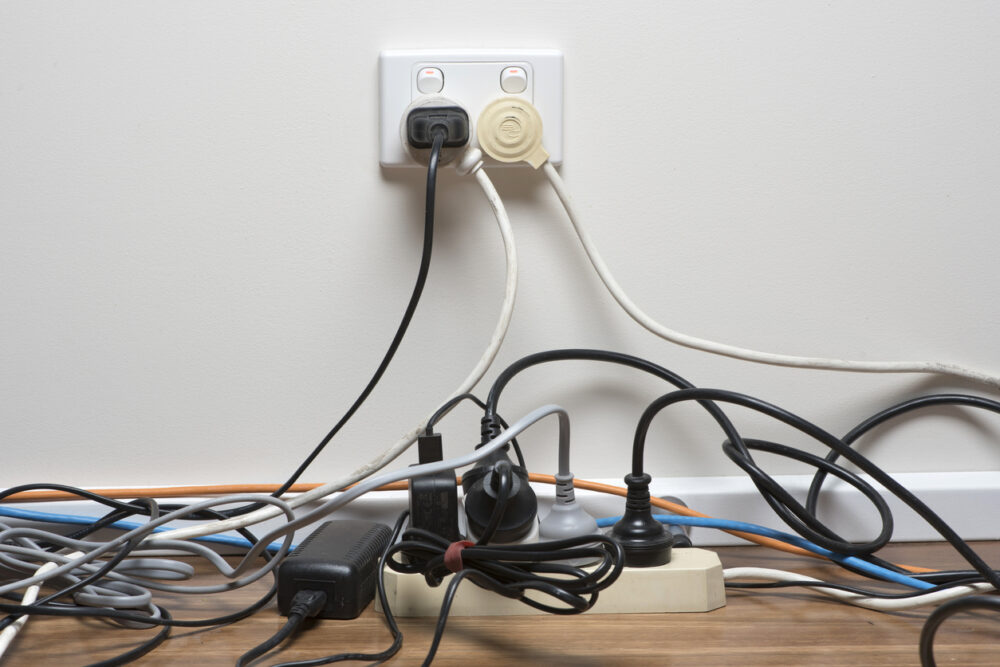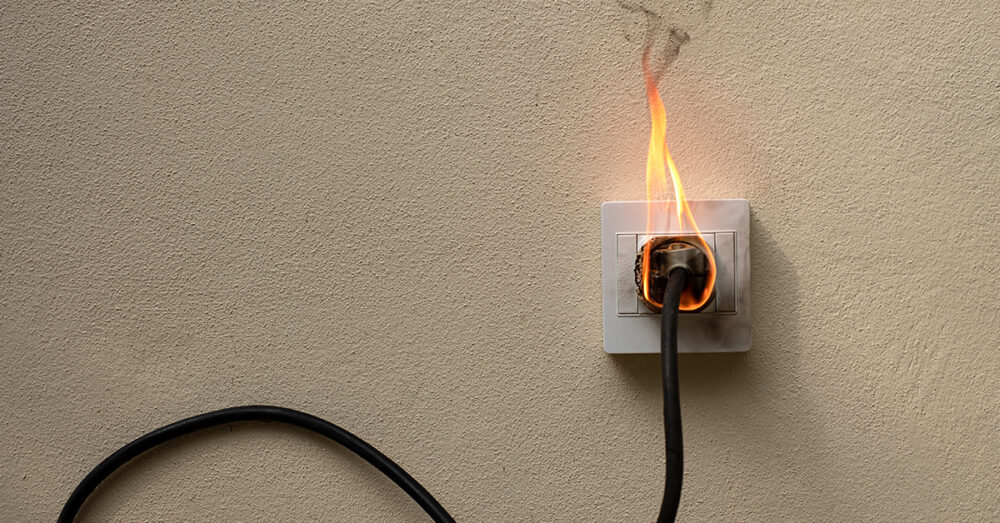Having a safe and functional electrical system is crucial for any home. However, electrical issues can arise unexpectedly and pose potential hazards if left unnoticed or untreated. That’s why it’s important to be able to spot signs of electrical problems early on. Whether it’s flickering lights, frequent circuit breaker trips, or unusual buzzing sounds, recognizing these warning signs can help you take prompt action and prevent potential accidents or damage. In this guide, we will explore common indicators of home electrical issues and provide insights on when and how to seek professional assistance. By understanding the signs, you can ensure the electrical safety and well-being of your home and loved ones.
Your home’s electrical wiring can be complex and often invisible; yet ignoring it could result in higher electricity bills, disrupted technology or potentially dangerous situations.
Whenever an electrical issue arises in your home, it’s wise to consult a professional immediately in order to protect both yourself and others. Common electrical problems that can be solved quickly include flickering lights. Remember that elements of electrical issues covered by home warranty can be substantial so you have to look into that as well.
Flickering Lights

Source: happyhiller.com
Flickering lights might seem like a minor nuisance, but they could actually be an early indicator of something more serious. If your lights have started flickering frequently, it would be wise to call in a professional electrician in order to investigate and assess if an update to your electrical system may be necessary. It could simply mean tightening bulbs or checking for loose fixture switches – but more frequently this flickering could signal larger issues which could have far reaching repercussions for both home and family life.
Loose wiring is one of the leading causes of flickering lights and home fires, leaving gaps for electricity to flow over; this process, known as “arcing”, poses health and safety threats to you and your family as it could result in fires or significant electrical malfunction.
Your choice of light bulb could also play a part in flickering lights. Some types require more current to start up than others, which may cause voltage fluctuations and cause flickering lights to happen more frequently. If your home currently contains various kinds of bulbs that require different current amounts for start up than others, switching out some for ones more compatible might help solve the issue.
If the lights in multiple parts of your house are flickering, this could indicate that a circuit or electrical outlet has become overloaded with electricity. To protect against this scenario, large appliances like refrigerators and air conditioners should be moved onto their own circuits for added safety.
Not Enough Outlets

Source: brickunderground.com
If you find yourself constantly plugging in new appliances or devices, it could be an indication of insufficient electrical outlets in your home. Furthermore, overloaded outlets are one of the leading causes of residential fires.
Overloading an outlet usually results from running too many devices from one single power source – like a standard household outlet or extension cord. Doing this may cause it to overheat and ignite fires; should this occur, your breaker may trip to protect your home and signal to you it is time to contact an electrician for repairs.
Signs of an electrical outlet problem include emitting a burning scent or feeling hot to the touch. If this occurs, turn off your breaker immediately and inspect for loose connections or exposed wires – if there are frayed or melted wires present it’s best to contact an electrician right away.
An overloaded outlet can start a house fire in certain situations, particularly if connected with series wires that connect directly to each outlet – this type of wiring is common among older homes with aluminum or knob-and-tube wiring systems. Therefore, investing in surge protectors and switching out old outlets with GFCIs (Ground Fault Circuit Interrupters), to limit how much electricity each outlet receives is also advised to ensure safety in case something does go wrong.
As you evaluate other outlets in a room, it may become easy to spot an outlet with problems by simply evaluating its peers. If multiple sockets in a single room appear dead or work inconsistently, this indicates a problem with either your circuit breaker or fuse box and requires professional maintenance from an electrician.
Burning Smell

Source: palmer-electric.com
Detecting an electric fire or electrical wiring problems in your home by smelling something burning may be the telltale sign of impending electrical fires or wiring issues in your home. A wire may begin melting due to heat exposure, creating short circuits or fires. If this occurs in any section of your house, immediately turn off power at your circuit breaker/fuse box before unplugging appliances located there and opening windows/doors as quickly as possible in order to vent air and avoid further damage. Ultimately if nothing can be identified as being responsible, hire an electrician as soon as possible so as to avoid further potential risks or further damages caused by such incidents.
Another warning sign of overloaded circuits or wires with low resistance that are overheating are frequent trips by your breakers, which could be caused by too many appliances drawing from one circuit, or low resistance wires overheating. While having to reset them may be frustrating, they are actually helping prevent fire hazards by keeping things from overheating too much. If this occurs again and again for no apparent reason, try turning off appliances or using lower wattage bulbs; or else turn some off!
Faulty sockets and switches may also contribute to a burning smell, as they allow wires to come into contact and create friction which heats up fixtures, eventually melting away plastic coating on wires. As such, it is vital that sockets and switches be checked regularly and replaced when necessary.
Bright Lights

Source: mosbybuildingarts.com
If your light is brighter than usual, there may be two possible explanations. One may be that its bulb has higher wattage; or perhaps your power panel is experiencing technical difficulties. Either way, you should consult with a professional in order to assess it further.
If your lightbulbs are burning out more frequently than expected, this could be a telltale sign that the wiring in your house has aged and worn down over time. In such an instance, calling an electrician immediately to replace wires may be in order as well as check your circuits to make sure they’re adequately grounded to ward off lightning strikes.
Another common electrical issue occurs when too many devices are plugged into one outlet at the same time, overloading your circuits and causing your breakers to trip – something which is both dangerous and expensive if using high-output appliances like hair dryers and curling irons. To help prevent this, surge protectors and GFCI outlets may help; alternatively you could try only plugging one appliance at a time to see if that helps.
Good news is, most wiring in your house shouldn’t show signs of electrical problems until it becomes old and worn-down, making detection simple if you know what to look out for.
The above tips are designed to help you avoid some of the most frequent electrical problems in your home. If any signs arise that indicate electrical trouble, it is wiser to contact a licensed electrician immediately as soon as possible so they can fix them before becoming more serious – this will keep both yourself and your family safe from potential electric shock hazards or fire risks caused by faulty wiring – an issue too important to be neglected!


















